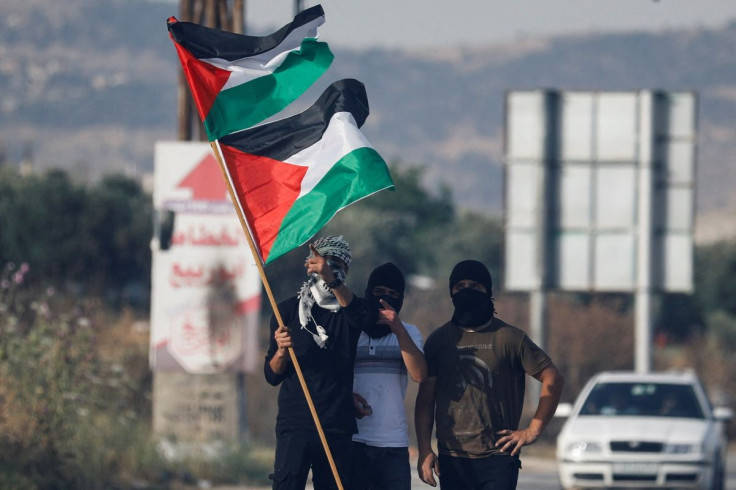Israeli-Palestinian "flag War" Brews As Violence Flares

Following weeks of violence in different parts of Israel and the West Bank, Israeli nationalists have targeted the red, green, black and white Palestinian colours in an escalating "flag war" that underscores a struggle over status and identity.
The conflict reached a high last week, when a bill banning the display of the Palestinian flag at state-funded institutions, including universities, passed a preliminary reading in the Israeli parliament.
To supporters of the bill, raising the Palestinian flag - which to some Jewish Israelis represents an "enemy" entity - is a provocation. To many Palestinians in Israel, the bill is an extension of what they see as Israeli attempts to erase their identity.
"Whoever wants to live in the State of Israel, the only democracy in the Middle East, must respect its symbols," said Eli Cohen, a member of parliament for the right-wing Likud party, who submitted the bill.
"Those who want to be Palestinian can move to Gaza or Jordan," he said.
Israel's Arab minority is mostly descended from Palestinians who lived under Ottoman and then British colonial rule, remaining in what became Israel when the country was created in 1948.
Making up about 21% of the population, they generally value Israeli citizenship because it affords them more benefits than stateless Palestinians living in the occupied West Bank or Gaza.
But many also identify as Palestinian - especially since Israel passed the nation-state law in 2018, which declared that only Jews have a right to self-determination between the Jordan River and the Mediterranean Sea.
Ahmad Tibi, a member of parliament for the Joint List, a coalition of Arab parties, said the aim of the bill was "to target Palestinian nationalism".
The flag "represents the Palestinian people wherever they are," he told Reuters.
"TRYING TO ERASE US"
Israeli law does not outlaw Palestinian flags but police and soldiers have the right to remove them in cases where they deem there is a threat to public order.
Last month, police attacked pallbearers at the funeral of well-known Palestinian journalist Shireen Abu Akleh to yank the flag off the coffin during a highly charged event that took place amid deep anger over her killing.
Days later, tens of thousands of nationalists marched with Israeli flags outside Jerusalem's Damascus Gate, a predominantly Arab area of the Old City, in what many Palestinians saw as a blatant provocation and attack on their identity.
Suspicions between Jewish and Palestinian citizens of Israel peaked last May during an 11-day war between Israel and the ruling Hamas faction in Gaza that saw violent incidents involving members of the two communities across the country.
In the run-up to last week's vote, students organized vigils in Israeli universities to commemorate what Arabs call the Nakba, when hundreds of thousands of Palestinians were forced from their homes or fled in the 1948 war that accompanied the foundation of Israel.
"By banning the flag, they're trying to erase us," said Hetaf Alhzayel, 23, a Palestinian psychology student at Ben Gurion University in southern Israel who took part in the vigil.
© Copyright Thomson Reuters 2024. All rights reserved.





















